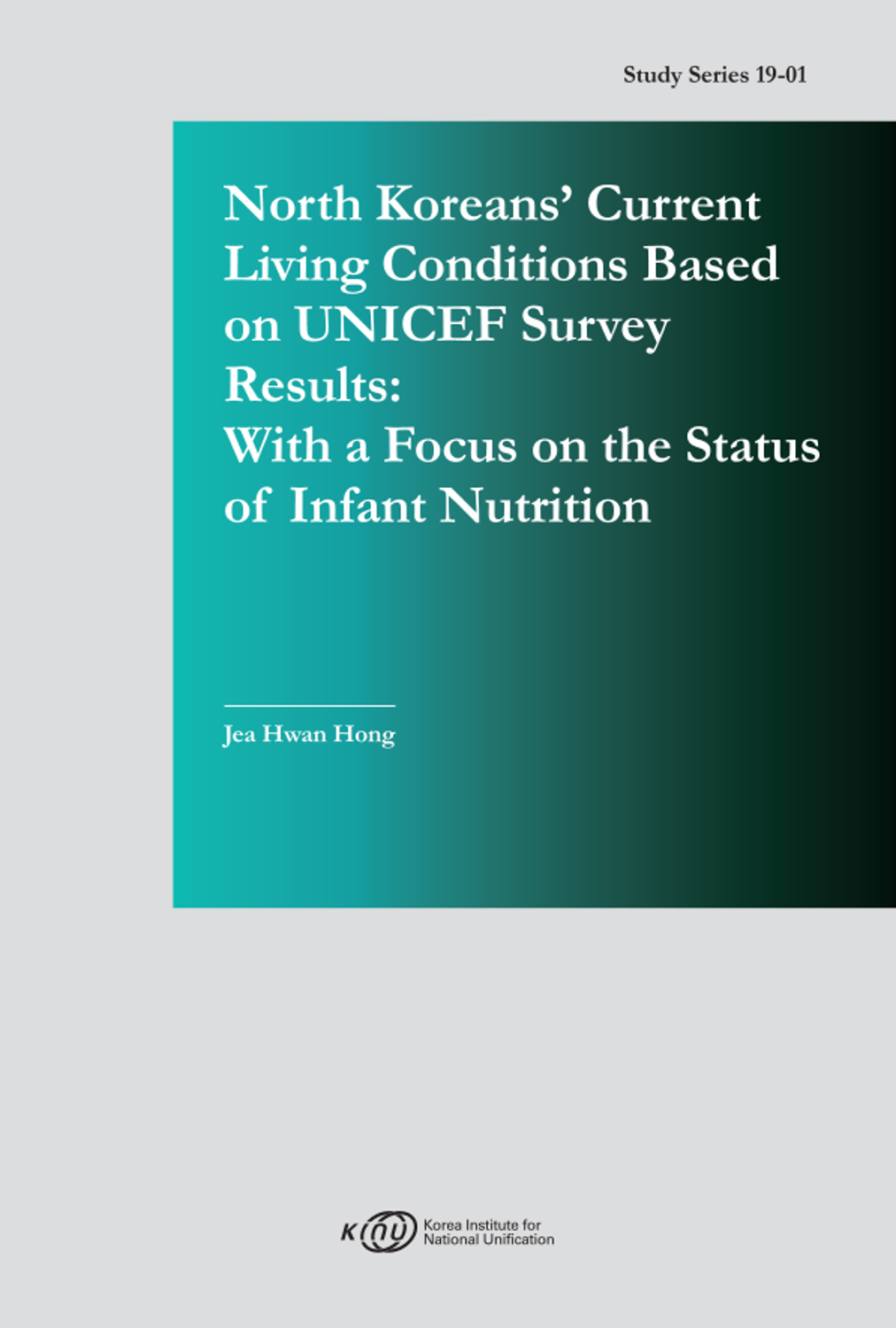
연구원발간물Study Series 19-01
North Koreans’ Current Living Conditions Based on UNICEF Survey Results: With a Focus on the Status of Infant Nutrition
- 개인저자
- Jea Hwan Hong
- 발행사항
- Seoul : Korea Institute for National Unification, 2019
- 형태사항
- 64p. ; 23cm
- 총서사항
- Study Series
- ISBN
- 9788984799585
- 청구기호
- 000 SS19-01
소장정보
| 위치 | 등록번호 | 청구기호 / 출력 | 상태 | 반납예정일 |
|---|---|---|---|---|
이용 가능 (2) | ||||
| 1자료실 | G0017227 | 대출가능 | - | |
| 1자료실 | G0017228 | 대출가능 | - | |
이용 가능 (2)
- 등록번호
- G0017227
- 상태/반납예정일
- 대출가능
- -
- 위치/청구기호(출력)
- 1자료실
- 등록번호
- G0017228
- 상태/반납예정일
- 대출가능
- -
- 위치/청구기호(출력)
- 1자료실
책 소개
This research analyzes North Koreans’ current living conditions based on the findings of international survey conducted within North Korea regarding its infant nutritional status. The research especially focuses on the state of infant nutrition among many other survey items for the following reasons.
First, an index on infant nutrition is one of the major indexes indicating people’s current living standard in each country. Although the level of infant development is known to show no
difference depending on race, in reality there exists a significant gap in the level of average infant development by a country. Such a fact is indicative of the significantly different environment allowing
infants to grow depending on a country. Therefore, the state of infant nutrition can provide an insight to some extent into the level of social and economic development of a specific country.
Second, improving the level of infant nutrition is one of the most pressing and important tasks impacting people’s lives. A lack of nutrition in infants is not only one of the major causes behind the infant mortality but also negatively affects the standard of living in the long-term in the form of a physical and psychological damage and reduced productivity. In the underdeveloped world, this may not be a problem only occurred at the individual level but could serve as a factor to perpetuate a vicious cycle of underdevelopment.
Third, an analysis of infant nutritional status can contribute to data utility. There are relatively abundant data on the status of North Korea’s infant nutrition since the international community, aside from UNICEF’ Democratic People’s Republic of Korea (DPR Korea) Multiple Indicator Cluster Survey (MICS), has often conducted a nutrition survey (or assessment) on North Korea’s nutritional status. A survey on the state of infant nutrition has mostly been the subject covered by international survey on people’s livelihood, which makes it easy for international comparison. Fourth, the findings of the survey on infant nutritional status have a relatively higher credibility compared to other survey subjects. Sometimes a survey on people’s living conditions requires people surveyed to write down answers, which hints a possibility that the survey respondents might falsely answer the question. By contrast, a survey on infant nutritional status requires an examiner to measure the height and weight of infants surveyed, which makes the distortion of information unlikely. .....
목차
1. Introduction
2. Introduction of Data and Terms
3. Infant Nutritional Status in North Korea: Trends and Characteristics
4. Improvement of North Korean Infant Nutrition: Factors and Implications
5. Regional Comparison Regarding North Korea’s Infant Nutritional Conditions
